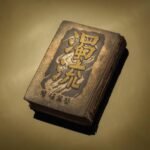(Courtesy of Getty Images)
South Korea’s landfill companies are put on the market, drawing interest from private equity firms and environmental companies as the waste increase and high entry barriers bolster their business outlook.
In March, Affirma Capital signed a memorandum of understanding to acquire Jentec, two years after the country’s largest landfill operator had been up for sale.
Affirma Capital, which has built a portfolio of waste management companies, valued Jentec, with a 170,000-square-meter landfill, at 500 billion won ($368 million). Founded in 2021, it is based in Dangjin, South Chungcheong Province.
Two other small-sized landfill companies are up for grabs.
Eco Solution in Seosan Auto Valley, Seosan, South Chungcheong Province and K Eco in Geumwang Techno Valley Industrial Complex, Eumseong, North Chungcheong Province, are on the market.
They are estimated at about 200 billion won ($148 million) and 100 billion won ($74 million) in value, respectively, according to people with knowledge of the matter on Friday.
Eco Solution has been operating a landfill measuring 50,000 square meters since 2012.
K Eco is slated to complete a landfill on a 12,000-square-meter plot of land in the second half of this year.
Waste management companies had been highly sought-after in the domestic M&A market about three years ago. However, M&A transactions in the industry have dried up since late 2022 due to the rise in the number of landfills and a subsequent decline in waste landfill prices.
The trash landfill rate fell to about 200,000 won per ton at the end of last year from 240,000 won in 2020.
Industry observers said that owners of Eco Solution and K Eco will find little difficulty in selling the companies.
Waste landfill is a licensing business and must meet all the requirements stipulated in the Waste Management Act. To obtain a new license, the company must pass various environmental impact assessments.
However, acquisition prices and local public opinion remain variables to the planned sale of the two companies.
“The valuation of a waste landfill company depends on how much landfill remains rather than cash generation capability and business history,” said one of the sources.
Opposition from local governments and civic groups will also remain a hurdle.
Meanwhile, KKR & Co. and debt-ridden Taeyoung Group have offered to sell their 50:50 joint venture Ecorbit Co., the country’s largest waste and sewage management company. Its enterprise value is estimated at 2 trillion-3 trillion won.
By Ji-Eun Ha
hazzys@hankyung.com
Yeonhee Kim edited this article














